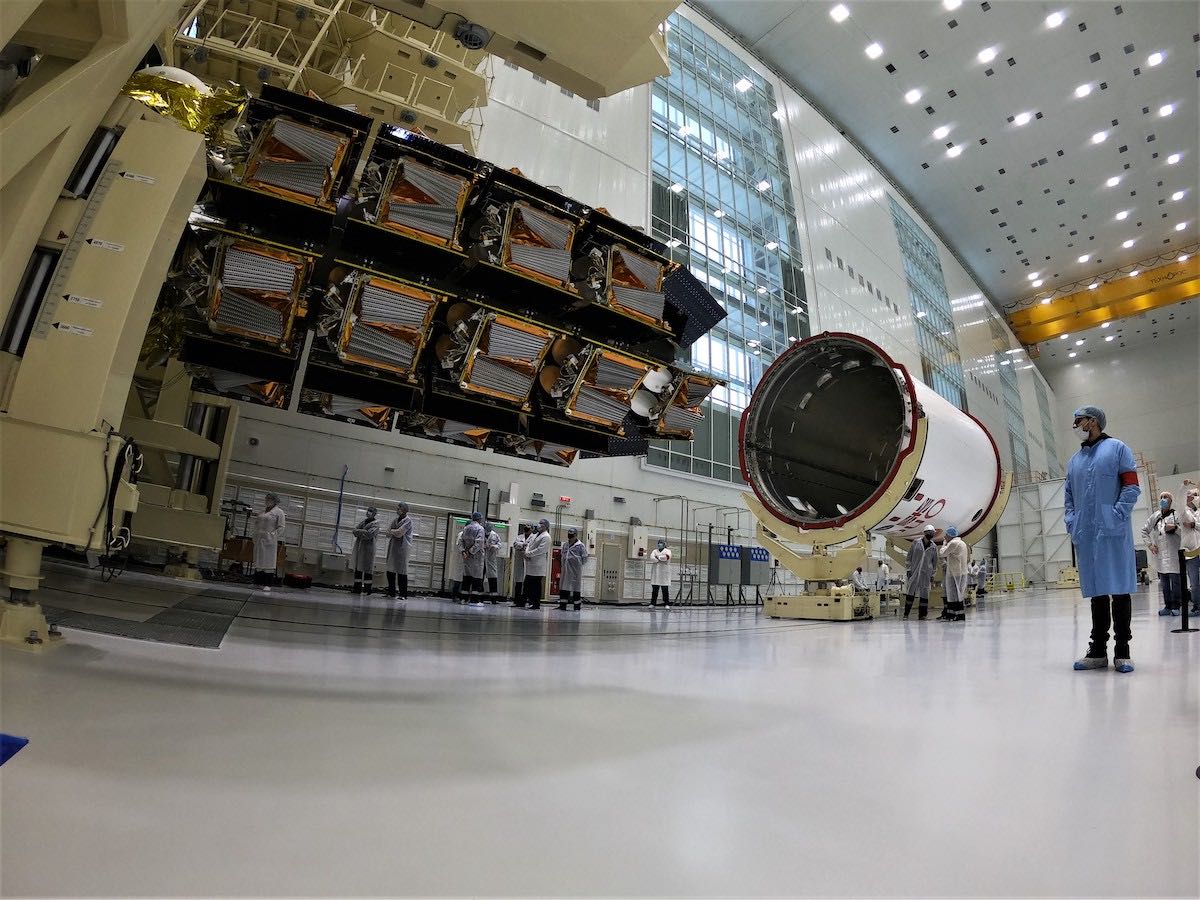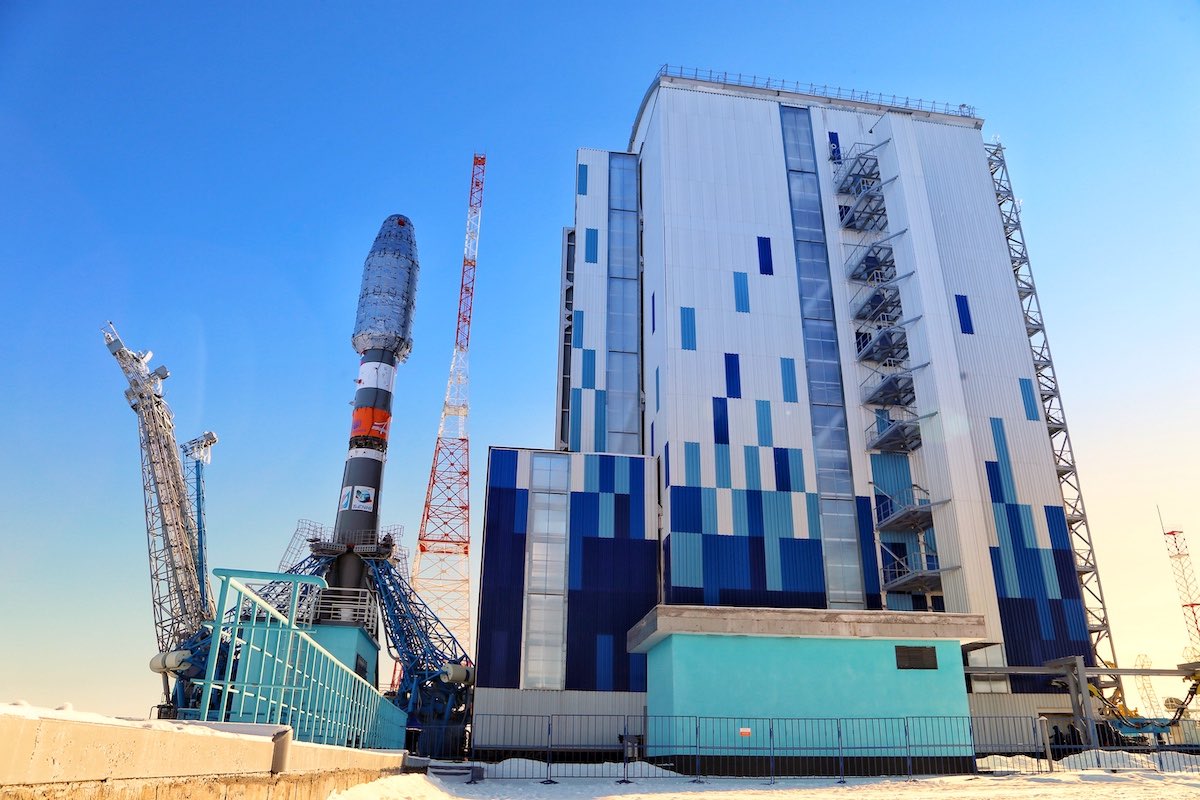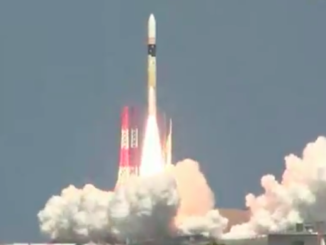
After a nine-month hiatus caused by bankruptcy, the deployment of OneWeb’s broadband network will resume Friday with the launch of the company’s next 36 satellites on a Soyuz rocket from the Vostochny Cosmodrome in Russia’s Far East.
Now under new ownership, OneWeb will have 110 satellites in orbit after Thursday’s launch, enough to make the company owner of the third-largest fleet of commercial spacecraft in orbit.
The broadband relay network is designed to beam high-speed internet signals around the world. OneWeb is competing with SpaceX’s Starlink network, now in advanced beta testing with more than 900 satellites, to deliver internet service to underserved communities, commercial and military ships and aircraft, and other remote customers.
Other companies, such as Amazon and Telesat, are developing their own broadband satellite fleets, but neither has launched operational spacecraft for their space-based internet networks. So far, SpaceX is closest to entering commercial service, followed by OneWeb.
A Russian Soyuz-2.1b rocket and Fregat upper stage will ferry the next 36 next OneWeb spacecraft, built by a subsidiary company named OneWeb Satellites near the Kennedy Space Center in Florida.
Liftoff from the Vostochny Cosmodrome in Amur Oblast in Russia’s Far East is scheduled for 7:26:26 a.m. EST (1226:26 GMT) Friday.
OneWeb has purchased a series of Soyuz launches from Arianespace, which oversees Soyuz flights from the European-run Guiana Space Center in South America. Through its subsidiary Starsem, Arianespace also manages commercial Soyuz launch services from the Baikonur Cosmodrome in Kazakhstan, and from Vostochny.
The first six OneWeb satellites took off from the Guiana Space Center on a Soyuz rocket in February 2019. Another 68 OneWeb spacecraft launched on two Soyuz flights from Baikonur in February and March of this year, before OneWeb suspended its launch campaign when it filed for bankruptcy.
The launch Friday will be Arianespace’s first commercial Soyuz mission from Vostochny, Russia’s newest launch site. It will be the sixth Soyuz flight from Vostochny since launches there began in 2016. The five previous missions from Vostochny were part of Russia’s federal space program.
The Soyuz rocket will head north from Vostochny with nearly a million pounds of thrust from its kerosene-fueled engines. The rocket’s four first stage boosters will jettison about two minutes after liftoff, followed by separation of the payload fairing at T+plus 3 minutes, 35 seconds.
The second stage, or core stage, of the Soyuz-2.1b rocket will shut down and fall away at T+plus 4 minutes, 48 seconds, giving way to a third stage RD-0124 engine for a burn lasting more than four minutes.
The third stage will release the Fregat upper stage at T+plus 9 minutes, 22 seconds, followed by ignition of the Fregat main engine a minute later to place the OneWeb satellites into a preliminary parking orbit.
A second Fregat engine firing at 8:40 a.m. EST (1340 GMT) will put the OneWeb satellites into a near-circular polar orbit with an average altitude of around 280 miles (450 kilometers).
The first group of satellites will deploy off the mission’s payload mounting structure, made by RUAG Space in Sweden, at 8:44 a.m. EST (1344 GMT). The remainder of the OneWeb payloads will separate in a staggered sequence four at a time at staggered times over the next two-and-a-half hours, with the final deployment scheduled at 11:18 a.m. EST (1618 GMT).
The mass-produced OneWeb satellites each weigh about 325 pounds (147.5 kilograms), featuring xenon-fed ion thrusters, Ku-band and Ka-band antennas to link with customers and ground stations, and deployable solar array wings. The OneWeb satellites will use their ion thrusters to raise altitude to 745 miles (1,200 kilometers), where controllers will ready the spacecraft for service.

After the launch Friday, 15 more Soyuz launches from Vostochny, the Baikonur Cosmodrome in Kazakhstan, and the Guiana Space Center in French Guiana will complete the sequence of missions to place around 650 OneWeb satellites in orbit.
OneWeb’s original launch contract with Arianespace was for 21 Soyuz launches. That contract amended during OneWeb’s bankruptcy now covers 19 Soyuz missions.
In 2019, OneWeb and Arianespace agreed that OneWeb satellites would fly on the inaugural launch of the next-generation Ariane 6 rocket. OneWeb is no longer planning to launch its satellites on the first Ariane 6 mission.
In March, OneWeb said it was unsuccessful in efforts to raise additional money from its previous owners — led by the Japanese conglomerate SoftBank — to fund construction of the company’s satellite constellation and the start of of commercial services.
OneWeb is headquartered in London with a significant workforce in the United States, and the company’s spacecraft are built in Florida by a joint venture between OneWeb and Airbus named OneWeb Satellites.
In July, the UK government and the Indian mobile telecom operator Bharti Global announced they will each commit $500 million to purchase OneWeb. OneWeb said the acquisition will provide enough capital for the company to complete the deployment of its global broadband network.
With a new chief executive and a revised launch contract, OneWeb emerged from Chapter 11 bankruptcy proceedings in November under UK government and Bharti ownership. The new owners approved the restart of satellite production in Florida, but the UK government’s new role in OneWeb could result in the shift of spacecraft manufacturing to Britain.
“OneWeb will continue to be headquartered in the UK, bringing new R&D programs, manufacturing opportunities and a global platform with priority spectrum usage rights,” OneWeb said in a statement last month.
With more launches planned in 2021 and 2022, OneWeb says it could start providing commercial internet services to some regions in late 2021.
“The success of this launch will put OneWeb on track to offer global services to customers starting with the United Kingdom, Alaska, Northern Europe, Greenland, Iceland, the Arctic Seas, and Canada in 2021, with global service following in 2022,” OneWeb said in a press release before Friday’s launch.
Email the author.
Follow Stephen Clark on Twitter: @StephenClark1.



